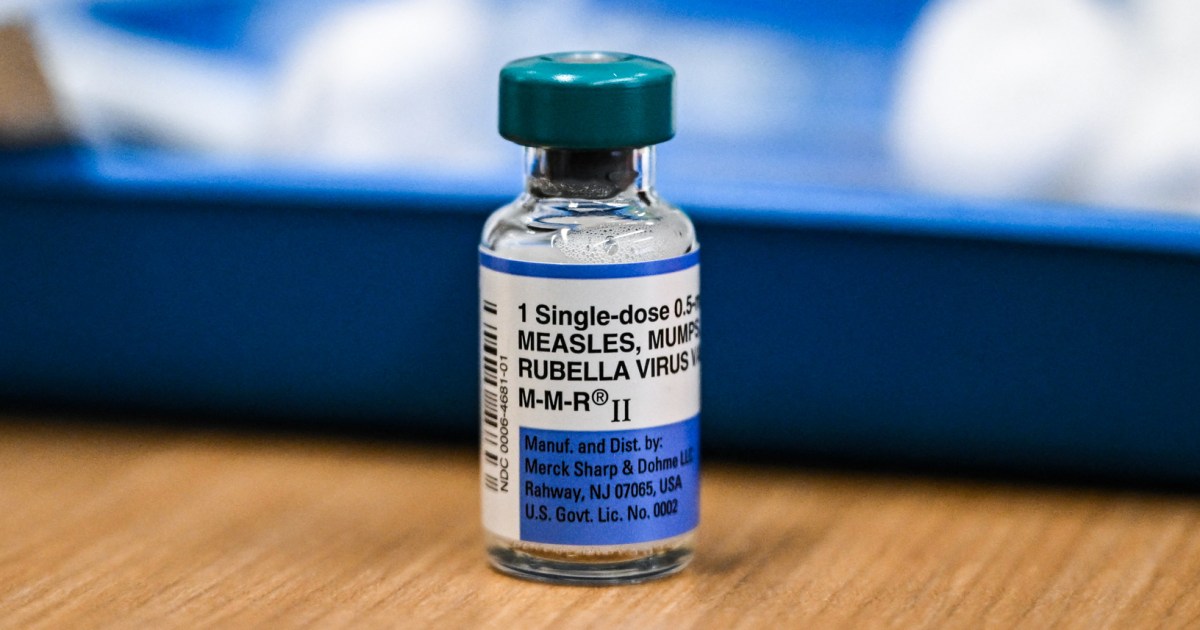Unpacking the Measles Crisis: Vaccination Rates Plummet as Misinformation Spreads
Measles cases are surging globally, with outbreaks in over 30 countries this year alone, as vaccination rates decline and misinformation proliferates. Health officials warn that preventable diseases are making a dangerous comeback, fueled by vaccine hesitancy and the unchecked spread of dubious health claims on social media and search engines. The World Health Organization reports a 79% increase in measles cases in 2023 compared to the previous year, with unvaccinated children bearing the brunt of hospitalizations and complications.
The Alarming Resurgence of a Preventable Disease
Once considered eliminated in many developed nations, measles has staged a troubling comeback. The Centers for Disease Control and Prevention (CDC) documented 121 measles cases across 17 U.S. states in just the first quarter of 2024 – more than double the same period last year. Similar spikes have been reported across Europe, with the UK Health Security Agency declaring a national incident over rising cases.
“We’re seeing communities where vaccination rates have dipped below the 95% threshold needed for herd immunity,” explains Dr. Elena Rodriguez, pediatric infectious disease specialist at Johns Hopkins. “When immunization coverage drops, measles – one of the most contagious diseases known – finds vulnerable populations with terrifying efficiency.”
The consequences extend beyond temporary illness. Measles can cause:
- Pneumonia (occurring in about 1 in 20 cases)
- Encephalitis (1 in 1,000 cases)
- Long-term immune system damage (“immune amnesia”)
- Death (1-3 deaths per 1,000 cases in developed nations)
The Role of Digital Misinformation in Vaccine Hesitancy
Public health experts point to the internet’s “infodemic” as a key driver of declining vaccination rates. A 2023 study in Nature Digital Medicine found that 65% of vaccine-related queries on search engines led to at least one piece of misinformation in the top 10 results. Anti-vaccine content now outpaces factual information by a 3:1 ratio on some platforms.
“Dr. Google has become many parents’ first consultation,” notes Dr. Michael Chen, digital health researcher at Stanford. “When algorithms prioritize engagement over accuracy, well-meaning parents encounter a distorted reality where rare side effects appear common and vaccine benefits seem uncertain.”
Social media platforms have become particularly problematic. Anti-vaccine groups have perfected emotional storytelling techniques that bypass critical thinking:
- Personal anecdotes presented as statistical evidence
- Misinterpreted or outdated studies
- Celebrity endorsements of alternative medicine
- Conspiracy theories about pharmaceutical companies
The Dangerous Impact of Vaccine Misinformation
The consequences of this misinformation are measurable and severe. UNICEF reports that global measles vaccination coverage dropped to 81% in 2022 – the lowest since 2008. In some communities, rates have fallen below 60%, creating tinderboxes for explosive outbreaks.
“We’re not just fighting a virus anymore,” says WHO communications director Sarah Bennett. “We’re fighting an entire ecosystem of misinformation that preys on parental fears and exploits gaps in scientific literacy.”
Recent research highlights the disconnect between perception and reality:
- 32% of parents underestimate measles’ severity (Kaiser Family Foundation, 2023)
- 28% overestimate vaccine risks by at least 100-fold (MIT Study, 2024)
- 1 in 5 believe debunked claims about autism links (Pew Research, 2023)
Balancing Free Speech and Public Health
The crisis has sparked debate about regulating health misinformation. While some advocate for stricter content moderation, others warn against censorship. “Removing misinformation without explanation can fuel conspiracy theories,” cautions First Amendment scholar David Greene. “The better approach is algorithmic transparency and promoting authoritative sources.”
Tech companies have taken tentative steps. Google now surfaces CDC information for vaccine queries, while Meta labels vaccine-related posts with fact-checks. Yet critics argue these measures remain insufficient. “Warning labels don’t undo the emotional impact of fear-based content,” argues misinformation researcher Dr. Priya Kapoor.
Strategies for Rebuilding Vaccine Confidence
Public health campaigns are adapting to the digital age. Successful initiatives share several key elements:
1. Empathetic messaging: “Shaming vaccine-hesitant parents backfires,” explains communication specialist Mark Davis. “We meet people where they are, acknowledge their concerns, then provide facts.”
2. Community engagement: Local trusted leaders – pediatricians, teachers, religious figures – prove more persuasive than national campaigns.
3. Digital literacy programs: Schools and libraries now teach media literacy skills to help people spot misinformation tactics.
The results show promise. After implementing these strategies, Australia increased childhood vaccination rates from 90% to 94% in three years. Similar approaches helped Vermont rebound from a measles outbreak in 2022.
The Path Forward: Science, Policy, and Public Trust
Experts agree that reversing the measles crisis requires coordinated action across sectors. Medical professionals emphasize the safety record of the MMR vaccine – over 575 million doses administered since 1971 with minimal serious side effects. Meanwhile, policymakers debate measures like:
- Strengthening school vaccine requirements
- Improving access to vaccination clinics
- Funding independent vaccine safety research
- Regulating health claims on social platforms
As the world emerges from the COVID-19 pandemic, the measles resurgence serves as a warning. “These outbreaks show how quickly decades of progress can unravel,” reflects Dr. Rodriguez. “Rebuilding trust in vaccines isn’t just about measles – it’s about preparing for the next public health crisis.”
For parents seeking reliable information, health officials recommend consulting the CDC’s measles resource page or speaking directly with a pediatrician. In the battle against vaccine-preventable diseases, accurate information remains our most powerful tool.
See more WebMD Network



